Question: My classes are getting crowded. Should I move locations or cap classes?
Neither. Be more efficient with your space.
CrossFit Thin Air, a 400-square-foot affiliate, successfully accommodates multiple 12-person classes while maintaining a high level of fitness. If you’re facing challenges with equipment availability, floor or wall space, or effective coaching in a crowded environment, consider these four tips to optimize your space.
Tip #1: Mix it up and clean it up
We often become accustomed to the layout of our gyms, but a fresh perspective can reveal opportunities for improvement. Take a closer look at your space and equipment to identify inefficient zones.
Identify areas not actively used during workouts, such as corners, near the whiteboard, or around the rig uprights. Evaluate if your storage solutions are maximizing space. Are sandbags taking up more space than necessary? Can barbell holders be relocated to free up wall space for handstand push-ups or wall-ball shots?
Observe how members move around the gym during workouts. Are there areas where people frequently collide or feel cramped?
Once you’ve identified inefficient zones, consider how to maximize their use or eliminate them. Be ruthless in your assessment: Is the additional revenue from one more paying member per class worth the space occupied by a dusty yoke?
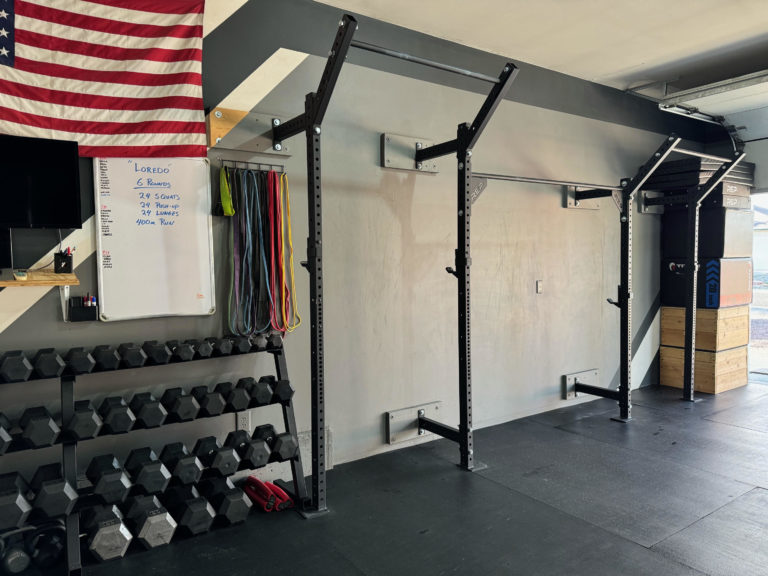
Tip #2: Evaluate your programming
If your programming includes overhead squats and double-unders, but your gym has limited floor space with jump ropes and barbells, consider substituting double-unders with bar hop-overs. Remember, the goal is to maintain the stimulus. Although we strive to preserve the movement in its entirety, we will still achieve a similar stimulus by replicating as many attributes of the movement as possible.
If wall space is limited and your programming includes wall-ball shots and handstand push-ups, consider replacing handstand push-ups with overhead presses. You can opt for shoulder presses if the workout involves strict handstand push-ups. If the workout involves kipping handstand push-ups, you can utilize a hip-mediated overhead press like a push press. Consider using dumbbells or kettlebells for the overhead pressing variation to save even more space.
Always analyze your programming holistically. If your focus is on inverted movements, you can still incorporate them by organizing a line of boxes down the middle of the room for box pike handstand push-ups. Consider adding a deficit component for an extra challenge.
By stepping back and asking yourself what your gym needs, the desired stimulus, and how to preserve movement patterns, you can adapt your programming to your available space. With effective coaching, you can still achieve your fitness goals, even with equipment or space adjustments.
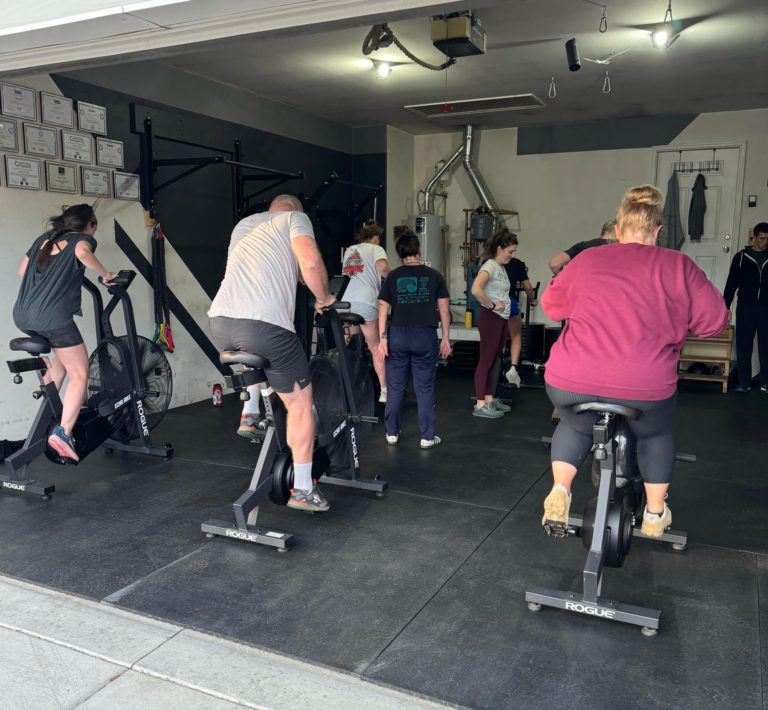
Tip #3: Adapt the Workout
Consider a workout like Grace: 30 cleans and jerks for time. If you’re short on space or barbells, you could split the group into two heats. This works particularly well for shorter-duration workouts like Grace. A bonus in this instance is that having a supportive onlooker will undoubtedly double your athlete’s intensity.
You could also modify the workout. Common alternatives are partner workouts, utilizing intervals where equipment is shared, or utilizing time-priority Fight-Gone-Bad-style schemes that allow athletes to rotate movements easily. One alternative for Grace is to partner up for a 6-minute AMRAP, switching every 5 reps with a partner. Each partner must perform 5 touch-and-go reps. This can be a fun way to manage barbell space while still experiencing single-modality intensity. The only fault in this instance is always modifying workouts like these in the same fashion, as it’s valuable to perform workouts like Grace in their entirety.
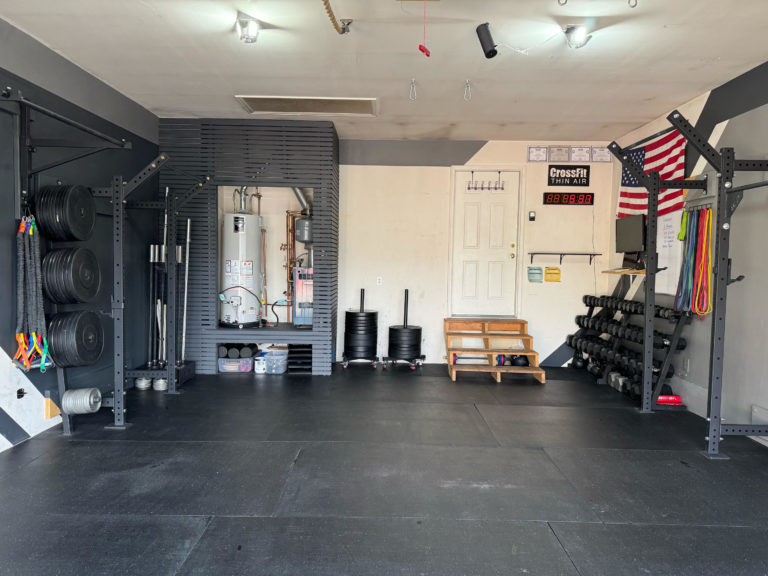
Tip #4: Position Yourself and Your Members to See and Correct Better
When planning your workout, consider your coaching role and location. During the warm-up, if you’re observing and correcting air squats, position your athletes so you can move around the perimeter of the room and assess hip mechanics. Think about how you’ll transition from your “demo spot” to your “seeing spots.” Even in larger gyms, bringing people closer together can improve visibility during warm-ups.
Before the whiteboard briefing, specify what equipment to grab, where to place and orient the equipment, where to stand, and the desired facing direction. If this isn’t your usual practice, try it out and coach every rep of the warmup to improve movement quality from the start.
When transitioning to specific warm-up movements, such as deadlifts, ensure you can observe athletes from the side. Have them line up facing the same direction, either staggered or in a straight line. Another option is to have them line up in two lines facing each other. This will allow you to easily assess their profiles from a single vantage point, call reps, and efficiently monitor bar paths.
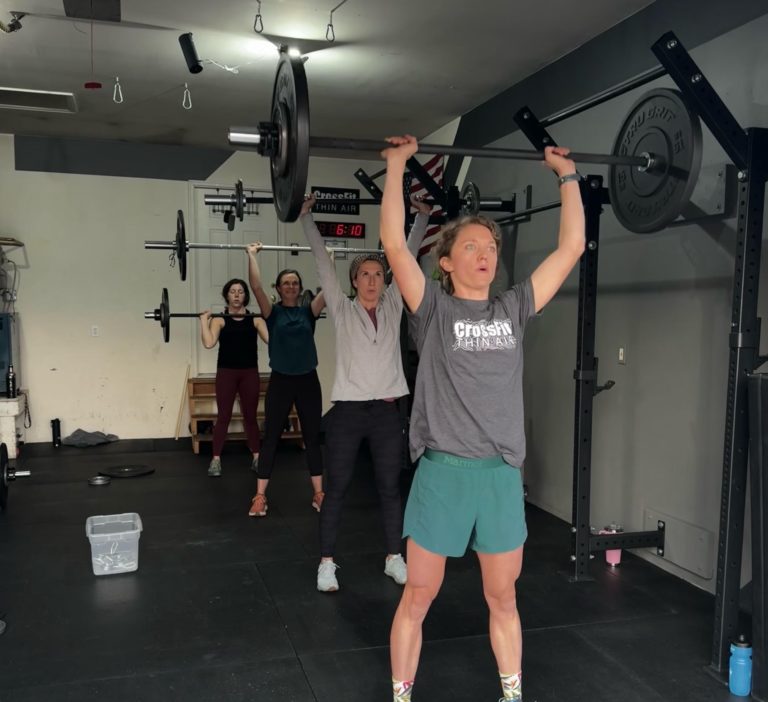
Bonus Tip: Pick the Low Hanging Fruit
In our garage affiliate, we have a variety of PVC lengths, including mini PVCs cut to the widest front-rack position of any member. Imagine the difference between 12 PVC pipes cut to 6 feet and 12 cut to 3 feet in our 400-square-foot space. To save space, we primarily use Rogue C-60 bars throughout our gym, except when using equipment from the rack or performing snatches or overhead squats.
Have a question for a coach? Please submit that here.
About the Author
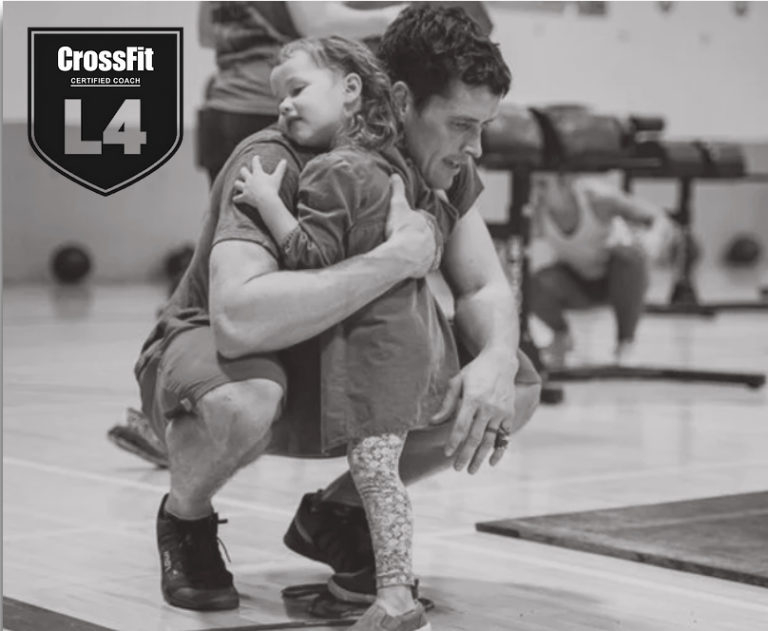
Adam Fuller owns CrossFit Thin Air, a garage affiliate in Buena Vista, CO. He has been coaching at CrossFit affiliates in North Dakota and Colorado for more than a dozen years. His passion is helping members seek virtuosity in their fitness and their lives outside of the gym. He earned his Certified CrossFit Coach (CF-L4) credential in October 2023 and loves to develop others in their coaching passions.
Ask a Coach: My Classes are Getting Crowded. Should I Move Locations or Cap Classes?